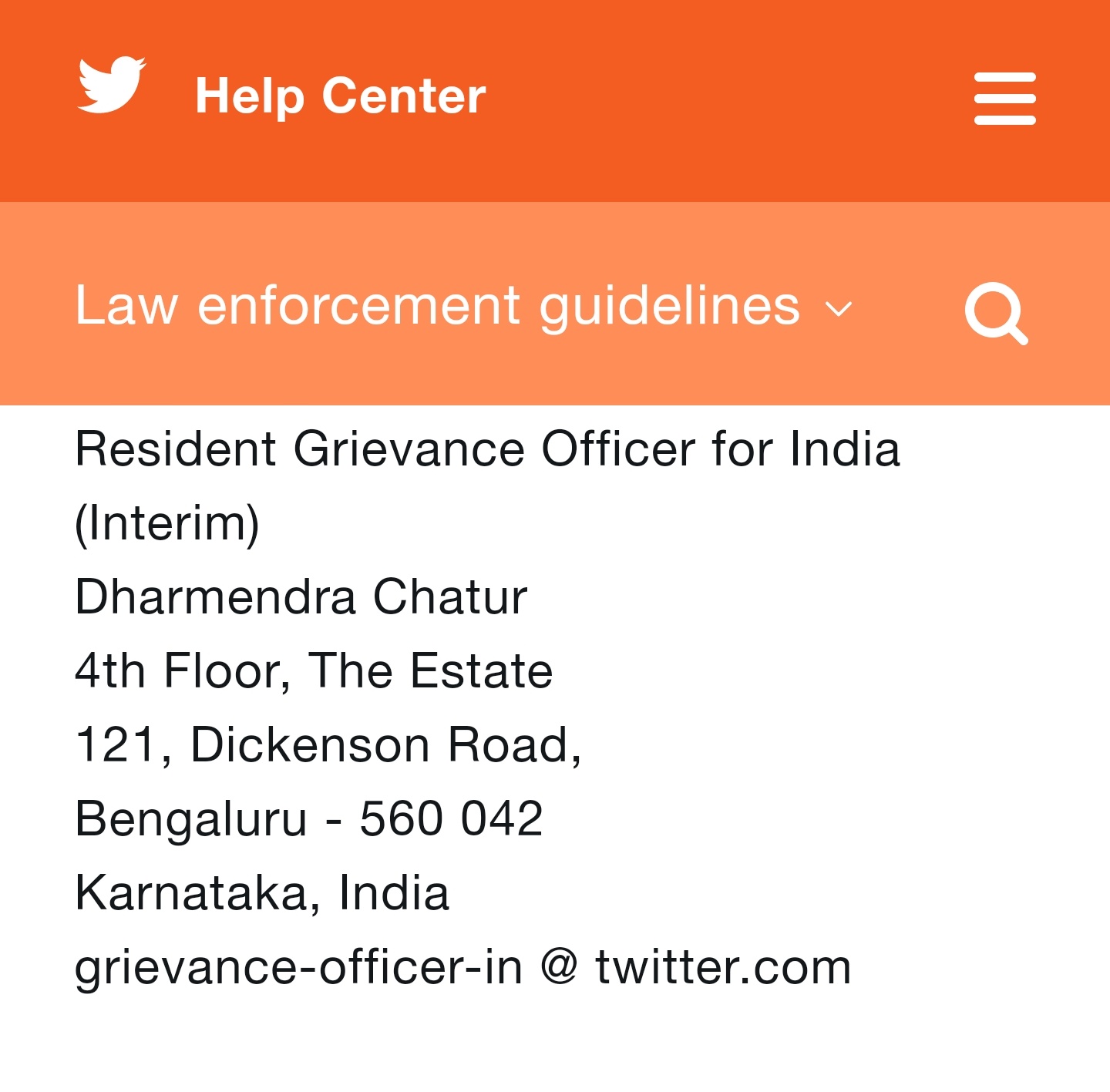Twitter, in a sense, was probably just show-boating. There was no way it was going to get away by being non-compliant to the law of the land. But after being intransigent and brazening it out for a few days, Twitter has finally appointed the grievance redressal officer as required by the new IT rules in India.
On its website, it is clear that the company has appointed Dharmendra Chatur as an interim grievance redressal officer. He is reportedly a partner designate in the law firm representing Twitter at the Delhi High Court.
Last afternoon, Twitter also formally told the Delhi High Court that it has appointed a grievance redressal officer in line with the Rule 4 of the Information Technology (Intermediary Guidelines and Digital Ethics Code) Rules 2021 on May 28.
Other social media intermediaries like Google, Facebook and WhatsApp had also appointed a grievance redressal officer without much ado.
- WhatsApp's woes in India continue - Its case is thrown out by court
- Indian alternatives to WhatsApp, Twitter get going - They're Sandes & Koo
Was Twitter trying to be clever by half?

Last evening, the Delhi High Court did issue a notice to Twitter for its alleged non-compliance with the new information technology rules. It was also made clear to Twitter that it has to comply with the new Information Technology Rules if they have not been stayed. The court has also asked the government to file its rejoinder.
Twitter had earlier sought 3 months time to comply with the new rules. It also tried to act cute by giving its US office as its redressal centre. This was needlessly needling the government and activists, one of whom actually took Twitter to court. And it is in that case that the microblogging platform company had to quietly announce that it had appointed the said officer.
Twitter's reluctance to put in place a redressal official, who will have a role to play only in case of complaint over contentious content, was a bit baffling.
And its strategy of using its run-in with the Delhi police in an altogether separate case in this issue was a clever-by-half strategy. It thought it was taking the moral high ground. What it was essentially doing was cocking a snook at the law.
And no company can get away with such a public posturing.
No comments:
Post a Comment